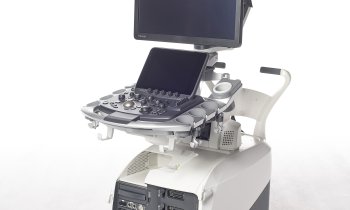Prostate Cancer Screening
After lung cancer, the biggest killer among men is prostate cancer.
To date, there is insufficient knowledge as to the cause of this disease, or how to prevent it.
We asked some of our EH correspondents to report on measures taken in their countries to ensure that men are made more aware of this disease and whether screening services are provided for early prostate cancer detection.

GERMANY
‘We still lack valid data for PCa Screening!’
Meike Lerner reports:
German medical insurers offer and reimburse preventative screening for men aged 45 and above. However, this only covers a digital, rectal examination – PSA screening must be paid for. According to Dr Georg Salomon, (above) Head of the Martini-Klinik at the UKE in Hamburg, which specialises in prostate cancer, we still lack reliable data from evidence-based studies for a comprehensive screening programme for prostate cancer and its advantages for patients. As an urologist, he places a lot of hope in imaging procedures.
Most patients feel very insecure when they receive a tumour diagnosis and then they tend to live in fear. This is why modern diagnostic procedures can be both a blessing and curse. This also applies to the early detection of prostate carcinoma (PCa), because a considerable proportion of prostate cancers do not result in any symptoms for a long time and do not impact on the quality of life in those affected. On the other hand the diagnostic significance of the PSA level is controversial due to its low specificity (c. 30%). For Dr Salomon, these two points mark the research path that urologists need to explore with regards to prostate cancer: ‘Our objective is clear: We want to detect the tumour and characterise it as precisely as possible, so that we can make an assessment for the patient and take further therapeutic steps if needed. At the moment, we can detect small, “insignificant” tumours through biopsies, but it’s hardly possible to make reliable predictions as to their likely further development, i.e. their future size and aggressiveness. This missing information leads to a situation where we have to consider very carefully if men who have been diagnosed at a very early stage would actually benefit from immediate therapeutic intervention, or whether it would make more sense, from a strategic point of view, to just monitor the development of the tumour.’
Improving the characterisation of tumour tissue
Therefore, Dr Salomon does not believe in PCa Screening before there are valid data and procedures that enable reliable tumour characterisation. Each patient should be given the opportunity to have PSA testing if they want it. Evidence-based medicine will uncover the benefit of PSA screening. Currently, the most reliable way to gather information about the quality of tumour tissue is by biopsy. However, despite a significant increase in PSA levels a biopsy result can still be negative. This leaves the patient wondering what caused the increased PSA level, and unnecessary worries. In these unclear cases a second biopsy in usually recommended – Dr Salomon and his team normally use elastography for these cases because it can show prostate tumours with high accuracy.
The urologist hopes that data availability will soon improve for imaging PCa diagnostics. For many prostate cancers, possibly the concept of ‘active surveillance’ may be the happy medium between intermediate intervention and inaccurate risk assessment. However, we need to create a sold base of data for ultrasound procedures, as well as the use of large equipment. ‘If this means I criticise imaging procedures, I’m not doing this because I believe they are unsuitable with regards to PCa diagnostics,’ Dr Salomon emphasises. ‘To the contrary, I believe in their potential – but the developments are too slow for my liking,’
Advancing better tumour markers
Dr Salomon also believes that he and his urology colleagues should be committed to finding further tumour markers for prostate cancer: ‘With all the criticism surrounding PSA levels we must not forget that prostate diagnostics previously consisted only of a digital-rectal examination, which means the tumours detected were already so large that they were palpable and often already invading neighbouring organs. Therefore, the introduction of PSA testing was a step in the right direction. After all, two current studies – the European ERSPC and the American PCLO Study — appear to confirm that PSA screening can lower cancer-specific mortality. Now it’s up to us to balance the insufficient specificity of the PSA level through other tumour markers in the serum or urine.’
01.03.2009










